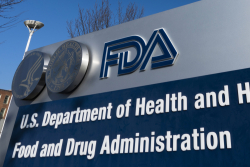For many months, Americans have been struggling to find amoxicillin, one of the key antibiotics used to treat pneumonia, bronchitis, and other bacterial infections. That’s because the United States has been facing a major shortage of amoxicillin—and nearly all our nation’s supplies are imported.
What's astounding, however, is that right now there is a U.S. manufacturer of amoxicillin—in Tennessee. Americans searching the internet have reportedly been calling the company in a desperate attempt to fill their prescriptions. Some are even willing to drive many miles to the company’s facilities, just to purchase amoxicillin. But government rules don’t allow prescription drugs to be purchased directly from a manufacturer.
The big question is why isn’t the federal government contacting this domestic manufacturer? The Department of Health and Human Services (DHHS) operates the Strategic National Stockpile, whose mission is to maintain medicines and other lifesaving supplies. Its website says these supplies “can be used as a short-term, stopgap buffer when the immediate supply of these materials may not be available or sufficient.”
U.S. Antibiotics, located in Bristol, Tennessee, is currently manufacturing amoxicillin, and using active pharmaceutical ingredients (API) supplied by companies in Europe. That's reassuring because U.S. and EU pharmaceutical manufacturers are more likely to follow stringent federal safety requirements for drug manufacturing.
However, DHHS is overlooking this domestic producer of a drug that the Food and Drug Administration (FDA) considers a critical medicine. Congress and the public should be asking why—and demanding answers.
Why aren’t America’s hospitals and retail pharmacies seeking out a domestic producer to obtain supplies of such a critical drug? Possibly because they’ve become so accustomed to buying billions of dollars’ worth of generic drugs imported into the United States each year.
In March, Food and Drug Administration (FDA) Commissioner Dr. Robert Califf told the House Appropriations Committee that he is very concerned about America’s current dependence on other countries—and that reshoring of domestic drug manufacturing must be part of the solution.
Meanwhile, in a time of shortage, it’s stunning that the government, hospitals, and large retail pharmacy chains are overlooking a domestic producer making the very medicine needed to treat serious bacterial infections.
Congress must take action to rebuild America’s domestic production of antibiotics and other key medicines—before it’s too late.
Over the past 30 years, much of America's drug manufacturing has moved offshore, including the production of most antibiotics. Since then, drug shortages have gotten worse as the U.S. healthcare system continues to depend on China, India, and other countries for generic drugs and the components to make them.
During the COVID crisis—when many countries, including U.S. allies, blocked exports of vital medical products—U.S. hospitals faced shortages of lifesaving medicines. The federal government and states contracted with domestic companies to make ventilators and personal protective equipment. Now, during a shortage of a critical medicine, there’s no excuse for not buying available supplies made at home.
The situation is dire, and what’s needed is a public-private partnership to help the U.S. rebuild its critical drug-making capacity.
All Americans are equally vulnerable to illness. And as parents look to keep their children healthy—and seniors worry about obtaining antibiotics to treat pneumonia and other infections—federal investment to bring antibiotic production back to the U.S. should be a top priority. It’s terrific that U.S. Antibiotics is making amoxicillin in the United States. But Congress must immediately focus on rebuilding America’s production of raw materials and active pharmaceutical ingredients for antibiotics so that lives won’t be put at further risk.
Rosemary Gibson is the author of “China Rx: Exposing the Risks of America’s Dependence on China for Medicine.”





